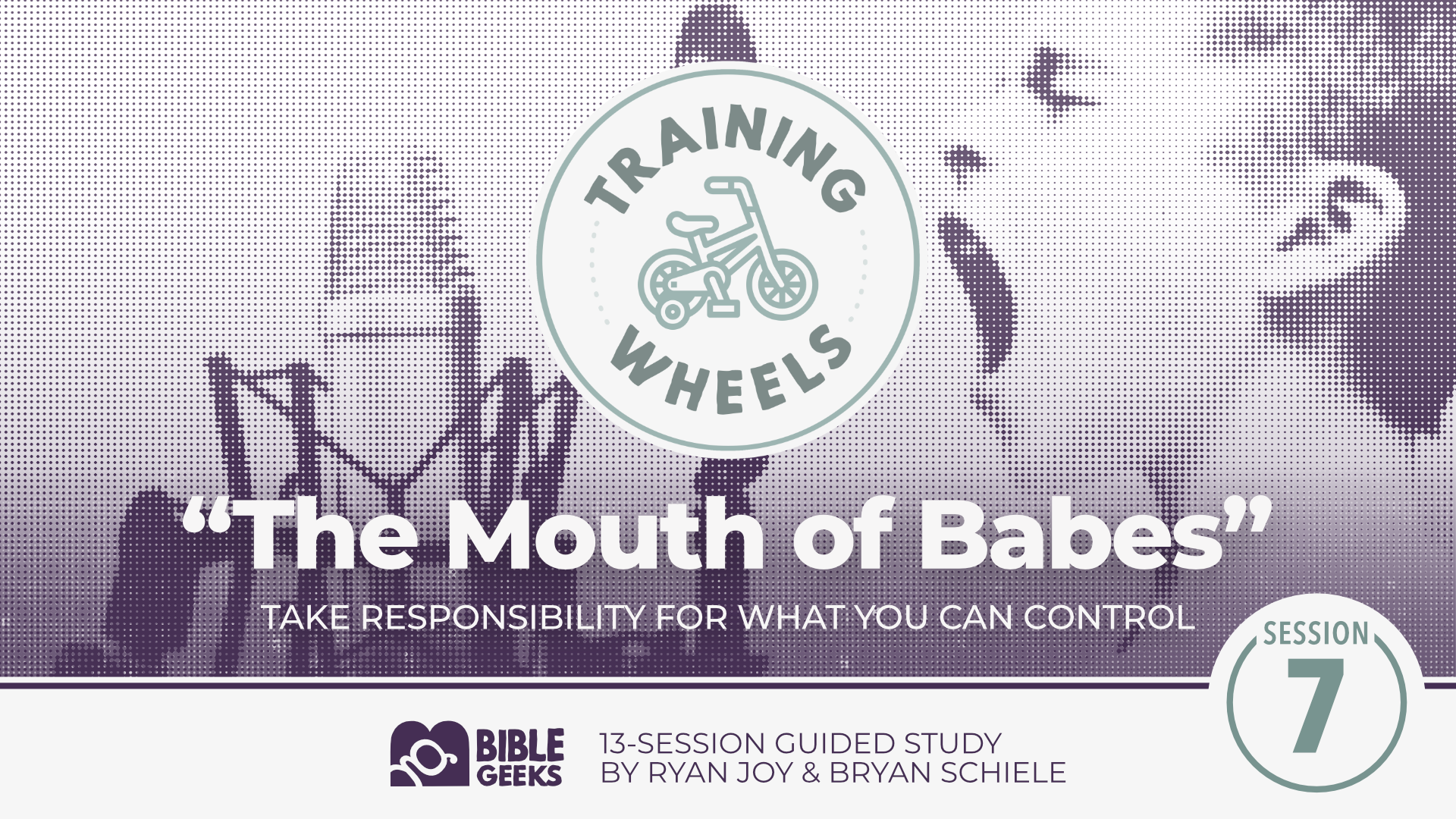
Prepare for Launch
get ready with these Helpful Resources
Matt. 7:12-27; 2 Tim. 1:3-7; Ezek. 18:1-32
“The Mouth of Babes”
Little kids don't usually have a filter for their words. Sometimes they surprise us with unexpected wisdom beyond their pint-sized proportions. And other times — most other times — they say things in public that make you want to crawl in a hole from embarrassment. If you don't have a budding young philosopher in the house, maybe "Out of the mouth of babes" sounds more like a punchline than a blessing. So how much control do we really have over what our kids say or do despite our best efforts? As we shepherd and shape our children, it's important to accept our limitations and take responsibility for what we control.
Good parenting is a daily choice you make, not the result of your child's choices.
THE BIG IDEA
Your success or failure as a parent doesn't depend on your kid's response. Imagine if we judged God, the Perfect Father, by the same criteria. If the majority walk the broad road to destruction (Matt. 7:13-14), does that mean God is a failure (Isaiah 1:2)? Of course not! People make their own decisions and are responsible for their actions (Ezek. 18:4) — and that includes our children.
So, what's your goal as a parent? We need to get clear on that before we start evaluating ourselves. For example, we aim to pass our faith to our kids, like Timothy's grandmother and mother did (2 Tim. 1:3-7). That's the right goal, as long as we take responsibility for the part we control. So do your part every day, planting and watering your child's heart (1 Cor. 3:6), and leave the growth to God.
Parents aren't all-knowing masters or experts. We just have twenty or thirty more years of experience. That's not nothing, but don't overestimate it either. Don't feel pressure to be "The Father" or "The Mother" with all the answers. Instead, stay humble, offering wisdom, love, and discipline as you guide them, support them, and correct them.Shepherding isn't glamorous; it's messy, costly, and exhausting. But in his limitless love, Christ committed himself to the gritty, sacrificial work of leading his sheep (John 10:11). And as we spend ourselves in the thankless job of parenting, may our kids see Christ in us!
How will you know if you've done a good job as a parent?
THE BIG QUESTION

Parenting Goals
Take Responsibility for What You Can Control
INTRODUCTION
Launch the study with a CONVERSATION STARTER on the Big Idea.
Read or watch “The Mouth of Babes” (above). What do you take from that Big Idea and Big Question? ICE BREAKER — Get everyone engaged and talking.
What's the most embarrassing thing your child has said or done in public?

ACT I
JESUS SAID — Matt. 7:12-27
What’s the main point of this passage?What insights and applications do you take from these words of Christ? What do we need to get from these words that — if understood and applied — has the power to change a life or a family?Is there anything else here you find helpful or interesting? Anything you’ve never noticed before — or have always loved about these words?

ACT II
DO YOU UNDERSTAND? — Ezekiel 18
What “proverb” did these exiled people quote to each other, as they complained about their circumstances (Ezek. 18:2)? What did God think about that popular saying (Ezek. 18:3-4)?After introducing his rebuttal (18:1-4), the rest of the chapter fleshes the idea out, arguing that:The one who does what’s right will ________ (18:5-9).If he has an evil son, the son’s blood will be upon ________ (18:10-13).If that evil son has a son who learns from his dad’s sins and obeys God, he’ll ________, but that won’t save his father (18:14-18).Because in God’s eyes, each one’s righteousness or wickedness rests upon ________ (18:19-20).If the wicked turn from their sins to do right, they’ll ________. And if the righteous turn from good to do evil, they’ll die. God is and has no pleasure in anyone’s death (18:21-32).
How would you summarize the main point of this chapter in your own words?What are the consequences of rejecting this truth?How can embracing this truth affect our view of our kids, and our view of ourselves as parents? Does embracing this Biblical truth affect where we put our attention?Based on the principle of personal responsibility, what are some things you can and should do to influence and direct your child’s choices?
ACT III
REACH OUT — Connect with each other with this question.
What regrets do you have as a parent?

WRAP UP
THE CHALLENGE — Ready to put it into practice?
Thank a parent for their work with their children.
REQUEST — Go to God in a closing prayer.
For example: "Dear Father, provide the increase as I plant and water in my children's lives" (cf. 1 Cor. 3:6-7).NEXT SESSION — Teaching Moments
Prepare by reading Luke 4:1-13; Deut. 6:1-25; Rom. 2:17-29
